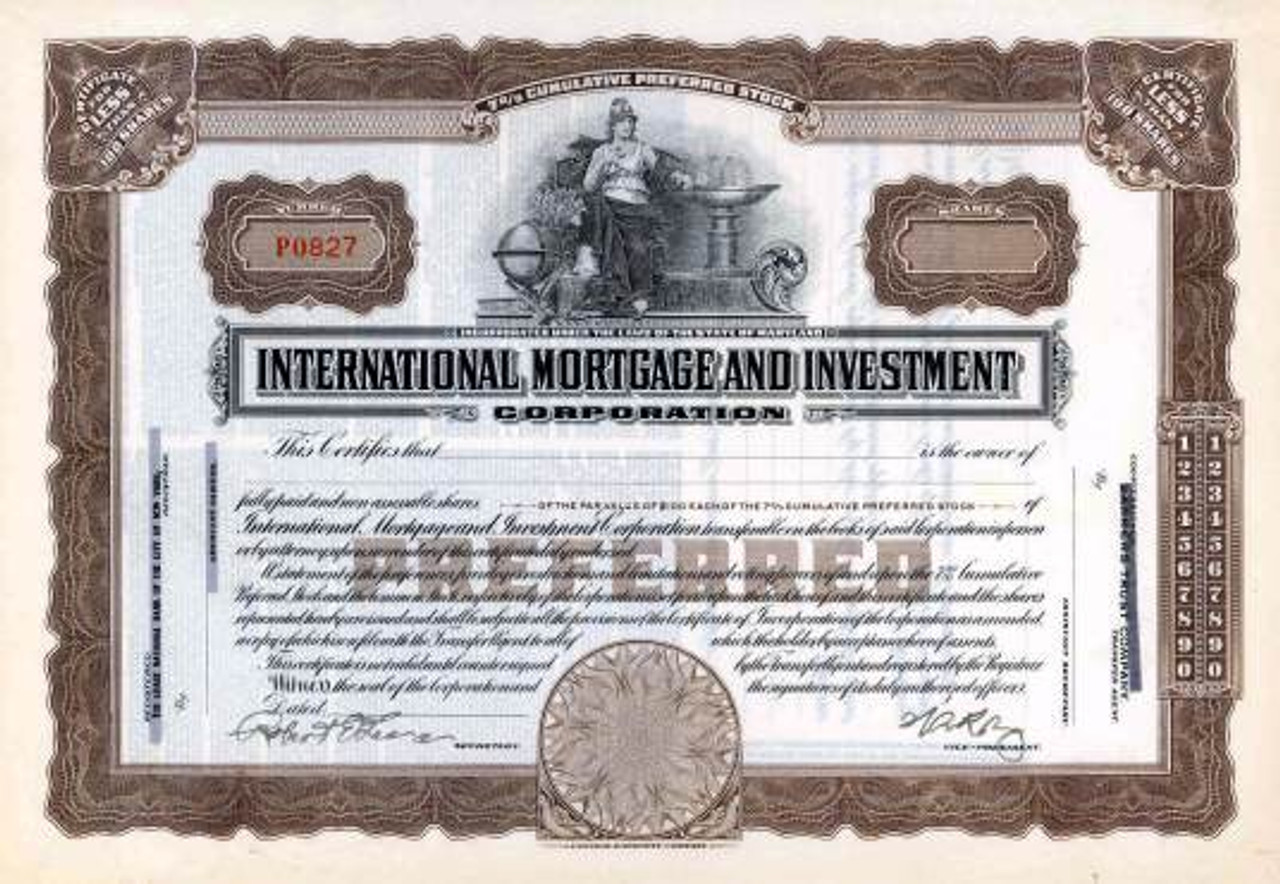4 Simple Techniques For Mortgage Investment Corporation
Table of ContentsUnknown Facts About Mortgage Investment CorporationThe 5-Minute Rule for Mortgage Investment CorporationHow Mortgage Investment Corporation can Save You Time, Stress, and Money.Mortgage Investment Corporation Can Be Fun For EveryoneLittle Known Questions About Mortgage Investment Corporation.
Does the MICs credit history committee evaluation each home mortgage? In many situations, home mortgage brokers handle MICs. The broker must not act as a member of the credit board, as this places him/her in a straight dispute of interest provided that brokers generally earn a payment for placing the home mortgages.Is the MIC levered? The economic organization will accept specific home loans owned by the MIC as security for a line of debt.
It is vital that an accountant conversant with MICs prepare these statements. Thank you Mr. Shewan & Mr.
Last updated: Upgraded 14, 2018 Few investments are as advantageous as a Mortgage Investment Home mortgage (Firm), when it comes to returns and tax benefitsTax obligation Because of their company structure, MICs do not pay income tax obligation and are lawfully mandated to disperse all of their earnings to capitalists.
This does not indicate there are not risks, however, generally talking, whatever the wider stock exchange is doing, the Canadian property market, specifically major cities like Toronto, Vancouver, and Montreal does well. A MIC is a company formed under the guidelines establish out in the Income Tax Obligation Act, Area 130.1.
The MIC earns earnings from those home mortgages on interest fees and basic charges. The actual allure of a Mortgage Investment Firm is the yield it offers financiers compared to various other fixed earnings financial investments. You will have no trouble discovering a GIC that pays 2% for a 1 year term, as federal government bonds are equally as reduced.
Examine This Report on Mortgage Investment Corporation
A MIC must be a Canadian company and it must invest its funds in home mortgages. That claimed, there are times when the MIC ends up owning the mortgaged property due to foreclosure, sale contract, etc.
A MIC will certainly make interest revenue from home mortgages and any type of money the MIC has in the bank. As long as 100% of the profits/dividends are given to shareholders, the MIC does not pay any revenue tax obligation. As opposed to the MIC paying tax on the passion it makes, investors are accountable for any kind of tax.

All About Mortgage Investment Corporation
And Deferred Plans do not pay any type of tax on the interest they are approximated to receive - Mortgage Investment Corporation. That claimed, those who hold TFSAs and annuitants of RRSPs or RRIFs might be hit with particular penalty tax obligations if the investment in the MIC is considered to be a "banned investment" according to Canada's tax obligation code
They will certainly guarantee you have discovered a Mortgage Investment Corporation with "certified investment" condition. If the MIC certifies, it might be really valuable come tax time considering that the MIC does not pay tax on the rate of interest revenue and neither does the Deferred Plan. A lot more generally, if the MIC falls short to satisfy the requirements set out by the Revenue Tax Obligation Act, the MICs income will be strained before it gets distributed to investors, decreasing returns dramatically.

It shows up both the real estate and securities market in Canada are at all time highs At the same time yields on bonds and GICs are still near document lows. Even money is shedding its appeal due to the fact that power and food prices have actually look at here pressed the inflation rate to a multi-year high. Which pleads the inquiry: Where can we still find value? Well I believe I have the answer! In May I blogged regarding exploring mortgage financial investment corporations.
Unknown Facts About Mortgage Investment Corporation

Numerous difficult functioning Canadians that desire to purchase a home can not get mortgages from typical banks due to the fact that perhaps they're self used, or do not have a well-known credit scores background. Or maybe they desire a short term funding to create a huge home or make important site some remodellings. Financial institutions often tend to neglect these prospective debtors because self employed Canadians do not have stable incomes.